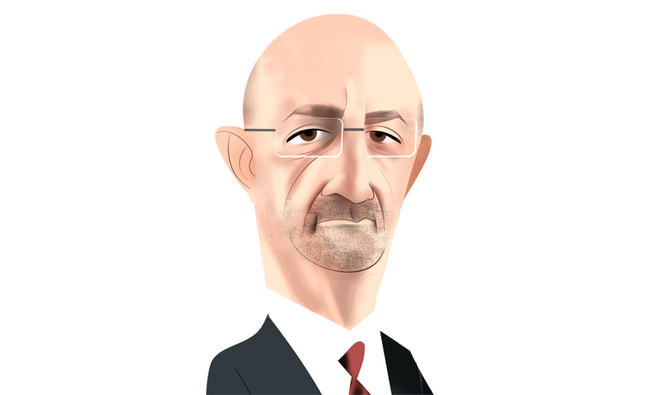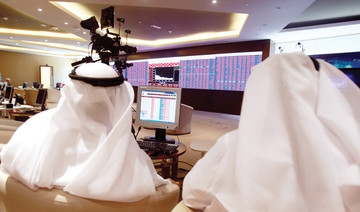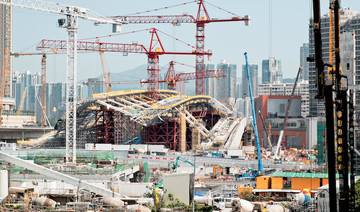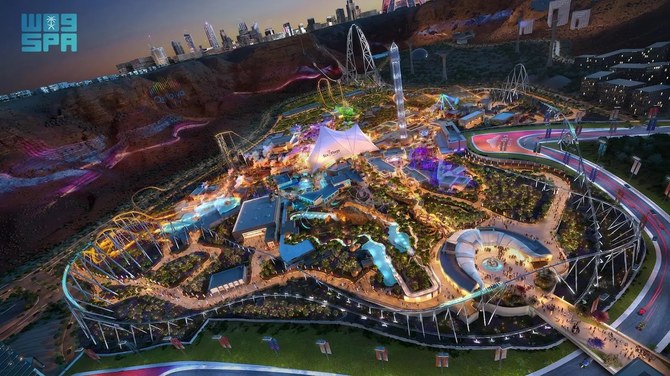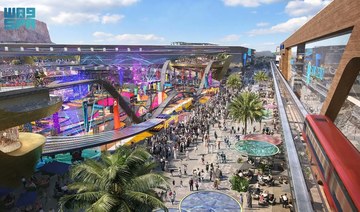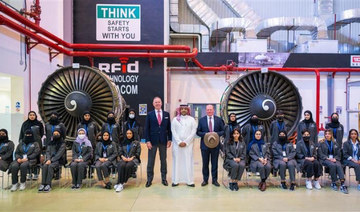DUBAI: Khaled Sifri, chief executive of Emirates Investment Bank, uses two words much of the time: Headwinds, and geopolitics. It turns out they are virtually synonymous for him.
Sifri is in a good place to judge the financial scene in the UAE and the region. The bank, one of the oldest financial institutions in the Emirates, provides investment banking and wealth management expertise for some of the top business families and institutions in the Gulf.
Just recently, he announced a big jump in half-year profits, but was at pains to point to the “headwinds” the bank was continuing to battle in the regional and global economic environments.
“The region has lots of positive attributes to serve the internationally wealthy community. Sooner or later it will be recognized as a wealth management hub, especially Dubai, and they will see the opportunities of investing in and from the region. All the more so now that Saudi Arabia has opened up to foreign investment,” he said.
Sifri reeled off the positives in the region’s investment architecture: Its location between the big wealth management centers of Singapore and Switzerland; its low tax regime; its more understanding regulatory regime compared with the West.
But then come the headwinds and geopolitics. “All these are the positives, but the geopolitics of the region often make it harder for the wealthy to view it as an alternative,” he said.
“The whole world is going through a big transition. The information revolution, the global financial crisis, even back as far as the demise of the Soviet Union. Trump, Brexit — is that not enough headwind? I have a negative view of Trump’s rhetoric,” he added.
Nonetheless, Sifri believes the region can overcome these challenges because of the unique advantages it enjoys.

Illustration by Luis Grañena
“The wealthy are concerned about tax, so they want to open for low tax jurisdictions like Dubai. That’s why many of them decide to become residents. Also many of them are aware of the heavy regulatory structure in Western markets, and that scares them away, too.
“There are tough rules in the West, and investors end up spending a lot of time and money on lawyers, regulators and compliance people. It is diverting business away from those places. London and New York, too, are being so difficult with compliance that they are throwing the baby out with the bath water,” he said.
It is not that Dubai and the other financial centers in the region welcome any investor regardless of reputation or background, but rather a different approach to the whole process of compliance and due diligence.
“In Dubai, we still have to be vigilant in terms of regulations, but we make an effort to sieve through the clients to separate the acceptable ones from the non-acceptable. The regulatory environment here is just as strict as elsewhere, but it is our willingness to go the extra mile to get to know the client. We spend a lot of money on due diligence and compliance,” he said.
Some analysts have recently added another “headwind” to the region’s challenges, especially in the UAE — a suggestion that key areas of the economy, from real estate to the retail environment through to tourism, are not performing in top gear.
Sifri does not agree with the pessimists. “On the local economy, the numbers from the IMF (International Monetary Fund) are probably more reliable than a view based on your choice of time to go to the mall. And the numbers suggest a positive view on the regional and local economy.
“The evidence on the streets of Dubai is probably more related to a supply overhang of goods and services, along with a reduction in demand. The supply side has built up massively in Dubai and Abu Dhabi, related to the growth in infrastructure and real estate,” he added.
But he recognized that there are some issues still to be resolved, especially in the property market. “Real estate is where the impact is greatest from the supply/demand formula. Dubai is in a particular condition because real estate increased dramatically as the emirate opened up. The cost of living has gone up quite a bit, and that is beginning to have an impact on life in Dubai,” he said, referring to a recent decision by Amazon to locate big chunks of its regional operations in Bahrain as a sign that the UAE is becoming an expensive place to do business.
Sifri believes that recent actions on fees, charges and levies in the UAE are positive signs that the issue is being addressed.
“I don’t want to look like I’m advising the government what to do, but in the region there have been two choices: The government can put limits on prices for schools and rents, for example. We saw it in Kuwait, where rents have been capped for a long time in some places.
“In the UAE the government has generally taken a view that it should not force prices down, but instead chose to increase the supply of goods and services. In the education sector, there has been a cap put on fees, but that is intended to address only a handful of schools that are top-end and especially in demand,” he said.
Many of EIB’s clients are wealthy Saudi Arabian investors, so he has had an opportunity to gauge the investment environment in the Kingdom as the big transformation of Vision 2030 kicks in.
“Saudi Arabia is going through a significant transition which happens to coincide with a sudden change in the ruling conditions. The Crown Prince Mohammed bin Salman is introducing dramatic changes, all of which appear to be positive. But there is a sensitivity about changing too fast.
“The aspirations are in the right direction and have broad support in the Kingdom and across the region. The majority of people want their aspirations to be fulfilled,” he said.
“But the bigger question is how and how long it will all take. Is it a long road to transformation, or is there a short cut? It’s like crossing the Grand Canyon: Do you go straight down and up in a straight line, or is it better to go around the valley to find an easier path?” Sifri asked.
He thinks the direct approach has advantages. “There was definitely a need to do something dramatic in the Kingdom. In the past, policy has been to change incrementally, like walking round the valley.
“The economic opportunity for investors is very significant, but it also carries a significant amount of risk, and each investor needs to decide what level of risk they are conformable with. The geopolitical environment is one of these risks and might deter some investors. As a bank, we’re quite bullish on the KSA economy. It is a meaningful part of our business. We believe it will succeed in overcoming the geopolitical factors,” he said.
Sifri said that he had detected no signs of what some analysts have called “capital fight” on the part of Saudi investors. “No, we have not seen that. In fact, many prominent Saudis are pulling capital back in to the country. We have seen some repatriate capital recently. With complete sincerity, we have not seen any capital flight,” he said.
Inflows and outflows of capital are, in any case, a historic phenomenon in the Middle East, which are determined by global rather than regional conditions, he said. But these would not halt the region’s long-term ambition to be a leading wealth management center, with local and regional institutions in the vanguard of that trend.
“People have decided they had more control over their assets in a local bank. Even if they are doing international investments from a base here, they have more control over the relationship,” he said.
By way of illustration, Sifri told an anecdote about an important regional client who explained why he wanted to deal with a regional bank. “He said to me: ‘If you do something with my money I don’t approve of, even if I may not know your chairman personally, I will certainly know somebody who does. If anything goes wrong in a Swiss bank, I do not have that kind of control,’ he told me. That’s a big attraction,” Sifri added.


